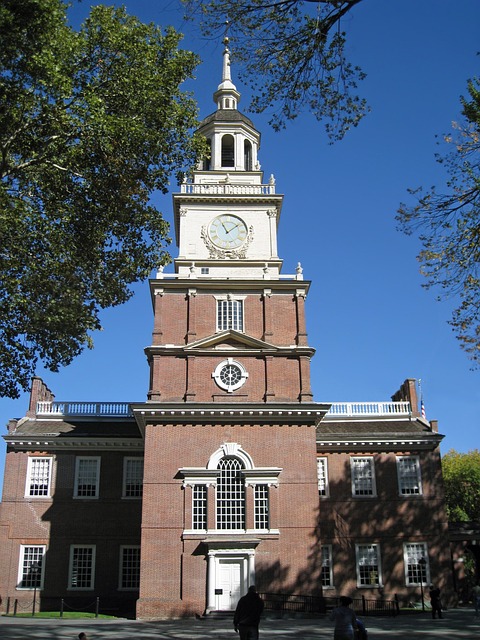In Philadelphia, PA, protective orders (Restraining Orders or No-Contact Orders) are powerful tools for sexual assault victims seeking safety and justice. Rape lawyers specialize in guiding survivors through the process of obtaining these orders, which prohibit contact from assailants, providing immediate relief and long-term protection. Eligibility is determined by proof of fear or harm, supported by medical records, police reports, or witness statements. The steps involve reporting to law enforcement, filing a petition at the Philadelphia Court of Common Pleas, and attending hearings where a judge decides on protective order issuance. Once granted, these orders offer much-needed security. Rape lawyers are essential resources, offering specialized guidance through complex procedures, ensuring victims' rights and safety are paramount.
Protecting Survivors: Navigating Protective Orders in Philadelphia for Sexual Assault Victims
Sexual assault survivors in Philadelphia, PA, have a powerful tool at their disposal—protective orders. These legal measures offer critical safety and support, empowering survivors to take control of their lives. This guide delves into the process of obtaining protective orders, clarifying eligibility criteria, and highlighting the essential role of rape lawyers in assisting victims. Understanding these steps is crucial for survivors seeking justice and security in Philadelphia.
Understanding Protective Orders in Philadelphia for Sexual Assault Victims

In Philadelphia, protective orders are powerful tools for sexual assault victims seeking safety and justice. These legal mechanisms, also known as Restraining Orders or No-Contact Orders, allow victims to establish boundaries and protect themselves from further harm by their assailants. A rape lawyer in Philadelphia PA can guide victims through the process of obtaining these orders, which prohibit the offender from contacting, threatening, or harassing the victim. This includes restrictions on physical proximity, ensuring the victim’s peace of mind and safety.
Understanding protective orders is crucial for survivors navigating the complexities of the legal system after a sexual assault. These orders can provide immediate relief and long-term protection, empowering victims to reclaim their lives. It’s important to remember that seeking legal assistance from experienced rape lawyers in Philadelphia PA can significantly enhance the chances of obtaining a protective order and ensuring the assailant faces consequences for their actions.
Who Can Apply for a Protective Order? Eligibility Criteria

In Philadelphia, PA, anyone who has experienced sexual assault or harassment can apply for a protective order. This includes victims of rape, as well as those who have been subjected to other forms of non-consensual sexual contact. The application process is designed to empower survivors by providing legal protection against further abuse.
To be eligible for a protective order, applicants must demonstrate that they have suffered or are in fear of suffering harm from the respondent, often a former partner, family member, or acquaintance. This can include physical, emotional, or psychological distress. Rape lawyers in Philadelphia PA can guide survivors through this process, ensuring their rights and interests are protected throughout. Evidence such as medical records, police reports, or witness statements may be required to support the application.
The Process of Obtaining a Protective Order: Step-by-Step Guide

Obtaining a protective order in Philadelphia, PA, after experiencing sexual assault is a crucial step towards healing and safety. The process involves several key steps guided by rape lawyers who specialize in such cases. First, victims should immediately report the incident to local law enforcement. This step is critical for documenting evidence and ensuring the perpetrator faces consequences. After reporting, victims can file a petition for a protective order at the Philadelphia Court of Common Pleas. This petition details the nature of the assault and why a protective order is needed.
A rape lawyer will assist in gathering necessary documentation, such as police reports and medical records, to support the petition. During a hearing, a judge will review the evidence and decide whether to issue the protective order. If granted, the order restricts the offender from contacting or coming near the victim, providing a much-needed layer of protection. This step-by-step guide ensures victims have access to legal protections tailored to their needs.
Types of Protective Orders Available in Philadelphia, PA

In Philadelphia, PA, victims of sexual assault have several protective order options available to ensure their safety and security. The types of orders include Personal Protection Orders (PPOs) and Restraining Orders, both designed to restrict an assailant’s contact with the victim. PPOs are issued by courts and can protect individuals from harassment, stalking, or any form of abuse, including sexual assault. They can also mandate that the accused stay away from the victim’s home, workplace, and school.
Restraining orders, on the other hand, are specifically for cases where a person has been convicted of or charged with a violent crime, such as rape. These orders prohibit the offender from any contact with the victim, their residence, and even social media accounts. Rape lawyers in Philadelphia PA can guide victims through the process of obtaining these protective measures, ensuring they receive the necessary legal protections.
Roles of Rape Lawyers in Assisting Victims with Protective Orders

Rape lawyers in Philadelphia, PA play a crucial role in assisting sexual assault victims navigate the complex legal system and obtain protective orders. These attorneys specialize in understanding the unique challenges faced by survivors and provide vital support throughout the process. They guide victims through the necessary legal procedures, ensuring their rights are protected and their safety is prioritized.
With expertise in local laws and court systems, rape lawyers can help victims understand their options for protective orders, which can include restraining orders or no-contact orders against the perpetrator. They offer invaluable assistance in preparing and filing these requests, collecting evidence, and representing the victim during court hearings. This support is instrumental in helping survivors regain a sense of control and security in their lives after traumatic experiences.





